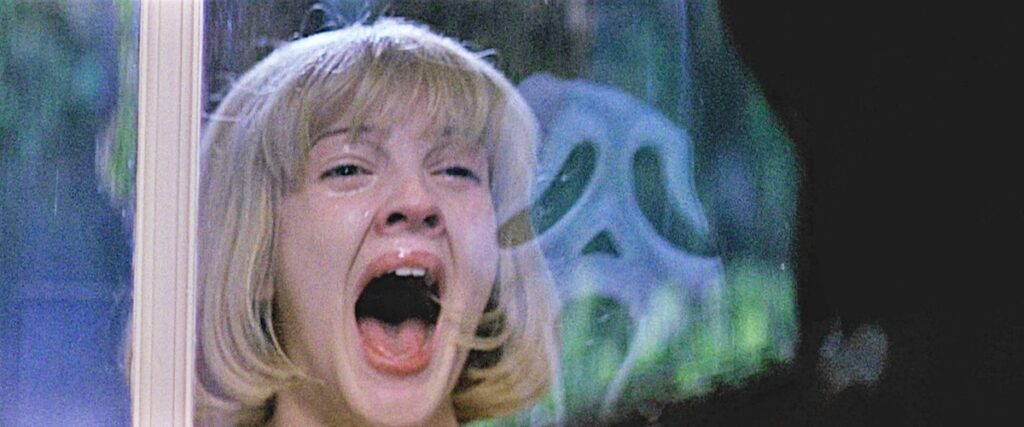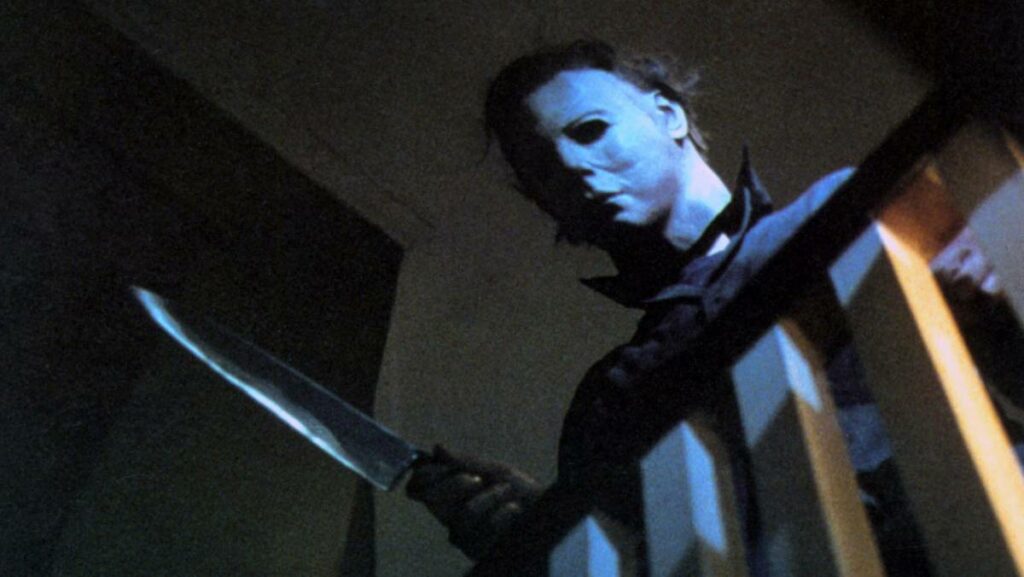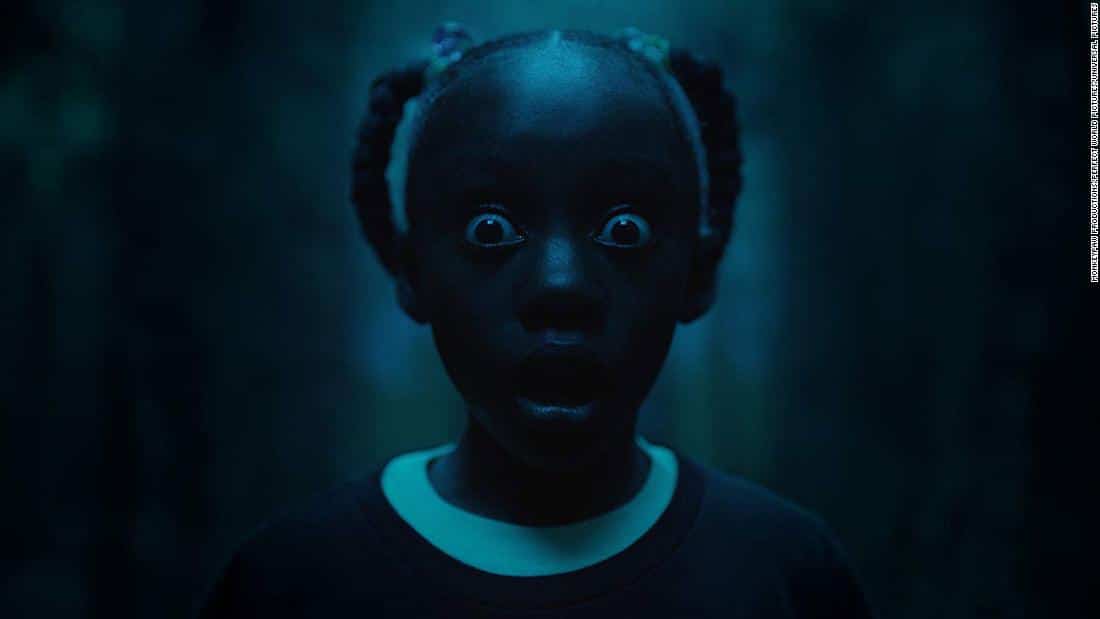Tales of evil spirits and witches existed long before the invention of the written word, let alone the invention of cinema. Horror is a well-tread genre, with strong antecedents in all forms. But what tips for writing horror have developed over the years for writers looking to shock their audiences?
The History of Horror
80s to Contemporary Horror
Tips For Writing Horror #1 – Tap into Relatable Fears
Lots has been said about how the horror genre offers audiences a safe way to experience their greatest fears. This is not dissimilar to bungee jumping or riding a rollercoaster. People like to flirt with fears and test the limits of human experience. A good horror script can do just that.
“You don’t enter the theater and pay your money to be afraid. You enter the theater and pay your money to have the fears that are already in you when you go into a theater dealt with and put into a narrative. Stories and narratives are one of the most powerful things in humanity. They’re devices for dealing with the chaotic danger of existence”
Wes Craven
Think “What scares me?” and chances are, it scares someone else. Tap into your deepest held fears and build on this to create a horror idea that can offer both thrills and catharsis.
Very few filmmakers have ever understood how to scare an audience like Wes Craven. The Hills Have Eyes, for example, exploits our most primal fears when isolated. The Last House on the Left, meanwhile, was famously about the USA’s attitude towards violence and the characters in A Nightmare on Elm Street become victims in their dreams.
All films play on the idea of vulnerability. It’s no coincidence that teenagers are often the protagonists here, venturing into adolescence with an exposing mix of newfound independence and still being a child. This is an experience all audiences can relate to in some way, either directly identifying or remembering what it’s like to be this vulnerable.

Tips For Writing Horror #2 – Build Characters With Depth
Writing a script with sympathy for all your characters, even your villains, can make a story much more interesting than one that is approached with zero nuance. Life is complex and the best horror stories reflect this.
“In Halloween, I viewed the characters as simply normal teenagers. Laurie, Jamie Lee’s character, was shy and somewhat repressed. And Michael Myers, the killer, is definitely repressed. They have certain similarities”
John Carpenter
Try considering the perspectives and motivations of each individual character in your script. Do they all make sense? Are there any missing opportunities for characterisation? Who should your audience sympathize with and why?
John Carpenter created horror history in Michael Myers, the awful incarnation of evil. It is very interesting to think this portrayal might have turned out differently had Carpenter (and Debra Hill) plainly written the character this way. Instead, there is a depth of character that not only makes him more interesting to watch but most importantly makes him all the more relatable and terrifying.
Who are your chosen heroes and villains and why? Moreover, what will make us identify (for better or worse) with them? What’s beyond the layers of their roles within the story?

Tips For Writing Horror #3 – What is Your Story Really About?
What do you want to say with your script? Every screenwriter should ask this of themselves. Horror leaves a lot of room for subtext which a writer can use to make something truly effective and meaningful. How might you add depth? What is your story truly about beyond its core parts?
“I continue to watch modern horror films, despite the constant disappointment. I don’t think a lot of the filmmakers making horror now know its worth, or realize the potential of the genre. Just because it’s a horror film doesn’t mean it can’t be deep. I think a lot of filmmakers who make horror now go in with dubious motives — money, predominantly. But horror is a pure form of cinema. I think there are some modern-day filmmakers out there who understand that. The films that will stand the test of time are the ones that have depth.”
Jennifer Kent
Jordan Peele, for example, tackled racism in Get Out, Whannel confronted abuse in The Invisible Man, and Harron explored materialism in American Psycho. Horror, free from realism, always has the potential to say something meaningful. Again, by tapping into some genuine and relatable fears, one can find the ground to tell a story that not only scares but has depth and something to say about the world we live in.
In The Babadook, for instance, Jennifer Kent shocked audiences with her depiction of motherhood. She started a conversation in the way only a horror film could, tapping into genuinely held emotions and fears and taking them to an extreme place in order to depict an important theme and start a conversation. You might want to scare your audience but what message do you want them to walk away pondering?
Tips For Writing Horror #4 – Don’t Just Focus on Scares
Scares are vital to a horror screenplay. However, make sure that all your other story rules do not go out the window. Give your characters powerful and robust arcs, make the conflict interesting, and keep hold of a solid structure, for instance. After all, an invested audience means the scares will have a greater impact.
“What you don’t want is for violence and gore to become more important than character and structure. A lot of slasher movies from the eighties were only focused on violence and gore, which robs the human beings in the story of any empathetic reaction from the audience, and instead makes them cheer for the gore”
Mike Flanagan
A film strives to elicit powerful emotions from an audience and fear is perhaps the most powerful emotion of all. But the best horror films affect viewers in multiple ways at once, tangling up fear, sadness, and euphoria. The supernatural can often be the most powerful and affecting way to explore normal, everyday lives and concerns. But without fleshing out those lives convincingly to start with, the genre elements won’t hit as hard.
At a very basic level, this is obvious. Every film where you root for the protagonist demonstrates this. But it can be easy when writing horror to forget about the basics of building a relatable and convincing world first and foremost. So build the horror on top of your key storytelling tenets, rather than letting horror lead the way.
Tips For Writing Horror #5 – Be Bold
“I love biting off more than I can chew and figuring it out”
Jordan Peele
Arguably the most successful and distinctive horror filmmaker of the twenty-first century, every screenwriter interested in the genre should study Jordan Peele. Get Out was a critical hit upon its release. However, in retrospect, it is actually the outlier among Peele’s other films.
Us and Nope were more divisive than Get Out, and their detractors would be unsurprised to hear Peele’s mantra here. He’s seemingly most interested in spectacle and some would argue those films aimed high and fell short, ending up messy and loose. However, nobody could deny the impressive aspirations. Peele captures imaginations and attention by telling big, bold stories.
Writing a script always feels like biting off more than you can chew. The best stories are those that are ambitious and take risks, especially in horror, because this often translates into originality. Peele’s work has imagery at its heart that feels incredibly original, captivating, and cinematic. Without these aspects, his films wouldn’t be as powerful and distinctive.
The films are by no means all spectacle and no depth. In contrast, Peele’s work always has powerful messages about American society at its core. But the spectacle and boldness of his ideas are what makes them feel so original and idiosyncratic. He’s interested in taking the genre into new places, playing with and subverting tropes whilst also being deeply indebted to all that has come before.
Jordan Peele’s work demonstrates the duality of great horror – matching captivating concepts with powerful messaging, both subverting and honoring genre antecedents and forging new territory that is deeply indebted to old territory. So be bold and fearless in your ideas. After all, in a crowded genre, you’ll need something distinctive to stand out.
Tips for Writing Horror #6 – Know Your Horror
It perhaps goes without saying but in order to write the best horror, you must consume horror. No lesson is better than watching a horror film (or two, or ten!) and learning straight from the source. This is, of course, true of most genres. But more than other genres, horror is a genre with a rich vein of tropes, lores, archetypes, and themes.
It never dies. It just keeps getting reinvented and it always will. Horror is a universal language; we’re all afraid. We’re born afraid, we’re all afraid of things: death, disfigurement, loss of a loved one. Everything that I’m afraid of, you’re afraid of and vice versa. So everybody feels fear and suspense.
John Carpenter
Ask yourself What do I like about this film? Why am I drawn to it? What is keeping me engaged? How would I do it differently? What makes this truly scary?
The best horror writers will always be thinking these things while watching or reading horror. Knowing the language you are seeking to write in sparks creativity like nothing else.
The horror genre has always developed on its past, and this shows absolutely no sign of stopping. The best horror movies are aware of what has come before. However, they’re also determined to make something new and consequently keep the genre evolving. So how will you add something both deeply satisfying and new to the horror genre?
– What did you think of this article? Share It, Like It, give it a rating, and let us know your thoughts in the comments box further down…
– Struggling with a script or book? Story analysis is what we do, all day, every day… check out our range of script coverage services for writers & filmmakers.
This article was written by Henry Spicer and edited by IS Staff.
Get *ALL* our FREE Resources
Tackle the trickiest areas of screenwriting with our exclusive eBooks. Get all our FREE resources when you join 60,000 filmmakers on our mailing list!


Great write as usual, thank you. There is a lot i didn’t know. I think for my next project, I should delve into this genre.
A very good overview of the genre and great tips. Thank you so much from a Spanish Executive Producer.